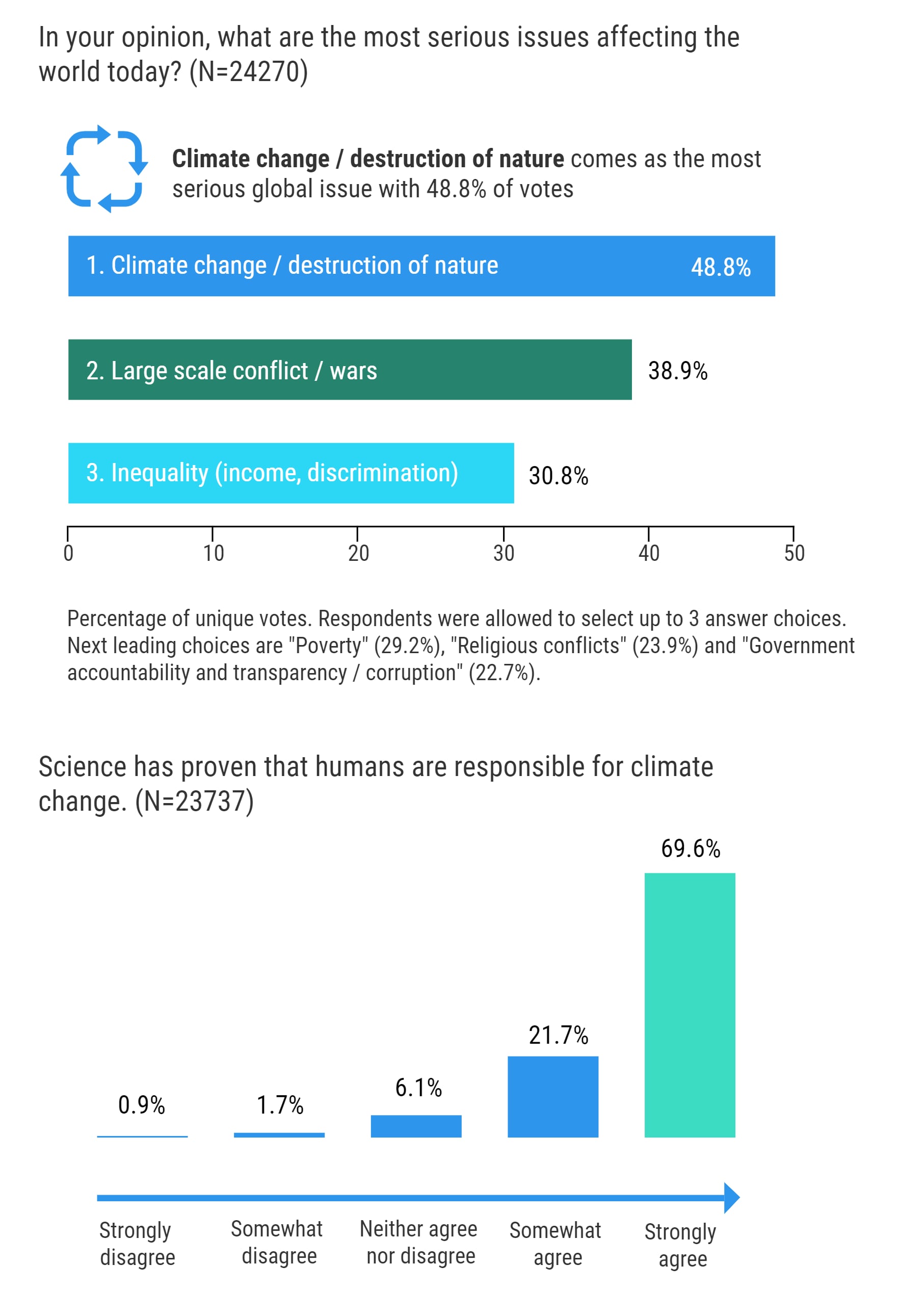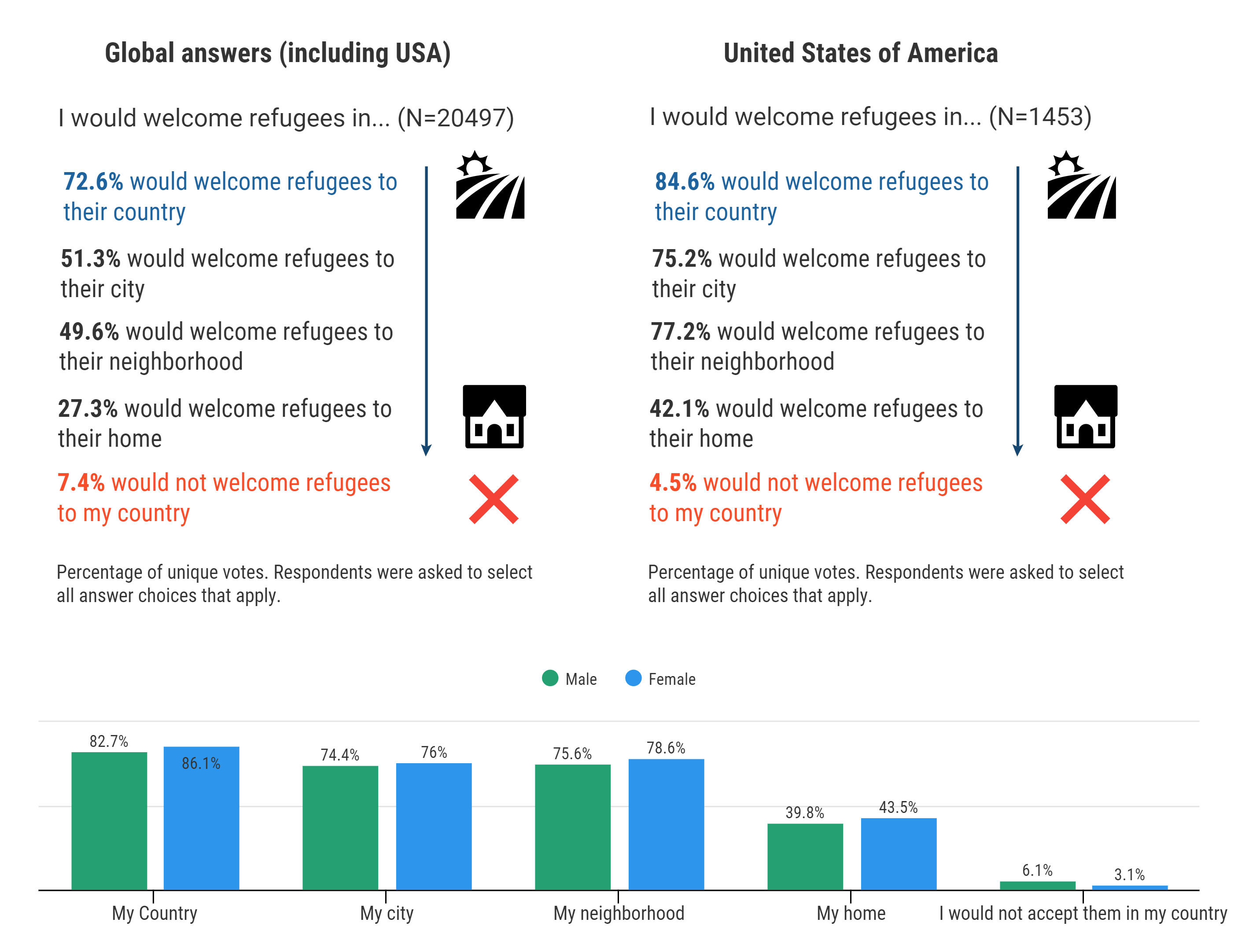5 things we learned from one of the world’s biggest surveys of young people

55.9% of 25,000 young people believe their views are being ignored when important decisions are made. Image: REUTERS/Yorgos Karahalis

Get involved with our crowdsourced digital platform to deliver impact at scale
Stay up to date:
Climate Crisis
Young people feel that they’re not being listened to by global decision makers. But with over half of the world’s population under the age of 30, it won’t be long before they will be making their voices heard.
Almost 25,000 people aged between 18 and 35 from 186 countries and territories took part in the Global Shapers Annual Survey 2017. It showed that 55.9% of respondents believe their views are not being taken into account before important decisions are made.
But young people’s influence will only get stronger as they occupy an increasing proportion of the global workforce, voter base and their consumer spending power grows.
The results of the survey, compiled by the World Economic Forum’s Global Shapers Community, offer an interesting insight into how young people view the world and its challenges.
Governments, businesses and other institutions that ignore the current generation of young people do so at their peril.
Here are five things we learned from the survey. You can explore the results in full here.
They’re very concerned about climate change
Of all the issues affecting the world today, young people are most concerned about the impact of climate change and the general destruction of nature.
This is the third year in a row that climate change has been voted the most serious global issue, suggesting that young people are yet to be convinced by global efforts – such as the Paris Agreement – to tackle the problem.
Perhaps unsurprisingly considering the current level of global instability, wars and inequality were listed as the second and third biggest concerns.
Poverty, religious conflicts and government accountability and transparency also ranked highly.

They distrust the media, big business and governments
The rise of fake news during recent elections around the world may go some way towards explaining why distrust for the media is growing among young people.
Just over 30% of survey respondents said they trusted the media, compared to almost 46% who said they didn’t.
There are similar levels of distrust towards big companies, banks and governments. This reflects the fact that many young people (22.7%) are worried about corruption.
The institutions deemed most trustworthy by young people are schools, international organizations, employers and courts of law.

They aren’t lazy, they’re workaholics
There is a common misconception that millennials are workshy. The Global Shapers Annual Survey 2017 shows that young people are, in fact, very career orientated.
When asked to name the most important criteria when considering job opportunities, salary came out on top, followed by a sense of purpose and career advancement.
Only around 16% said they are willing to sacrifice career and salary to enjoy life.
To underline the point that young people are not lazy, the survey found that the vast majority of respondents (81.1%) would be willing to move overseas in order to advance their career.
The US, Canada, the UK, Germany and Australia are seen as the most desirable countries to move to for job opportunities.

They’re optimistic about technology
Technological advances in recent years have sparked concerns within wider society that employers will look to swap human workers with robot replacements.
However, most young people (78.6%) believe that technology will create jobs rather than destroy them.
When asked to name the next big technology trend, 28% of survey respondents said that artificial intelligence will make the most significant impact.
Education is seen as the sector most likely to benefit from the adoption of new technologies.
Nevertheless, only 3.1% of respondents would trust robots to make decisions on their behalf.

When faced with the possibility of embedding an implant under their skin, 44.3% of young people surveyed rejected the idea.
They care about others
This is an empathetic generation, according to this year's survey. This is perhaps best highlighted by the fact that almost three quarters (73.6%) said they would welcome refugees to their country.
When asked how governments should respond to the global refugee crisis, more than half (55.4%) claimed that more should be done to include refugees in the national workforce. Just 3.5% said that refugees should be deported.
At a time of global uncertainty and movement towards isolationism, the vast majority of young people (86.5%) see themselves as simply ‘human’, as opposed to identifying with a particular country, religion or ethnicity.

Don't miss any update on this topic
Create a free account and access your personalized content collection with our latest publications and analyses.
License and Republishing
World Economic Forum articles may be republished in accordance with the Creative Commons Attribution-NonCommercial-NoDerivatives 4.0 International Public License, and in accordance with our Terms of Use.
The views expressed in this article are those of the author alone and not the World Economic Forum.
The Agenda Weekly
A weekly update of the most important issues driving the global agenda
You can unsubscribe at any time using the link in our emails. For more details, review our privacy policy.
More on Climate ActionSee all
Amanda Young and Ginelle Greene-Dewasmes
April 23, 2024
Andrea Willige
April 23, 2024
Agustin Rosello, Anali Bustos, Fernando Morales de Rueda, Jennifer Hong and Paula Sarigumba
April 23, 2024
Carlos Correa
April 22, 2024
Shyam Bishen and Annika Green
April 22, 2024






